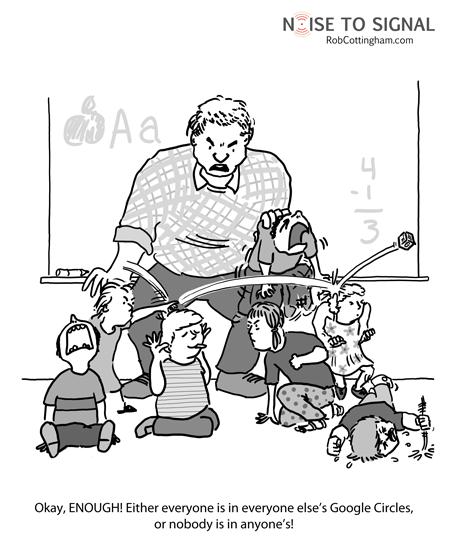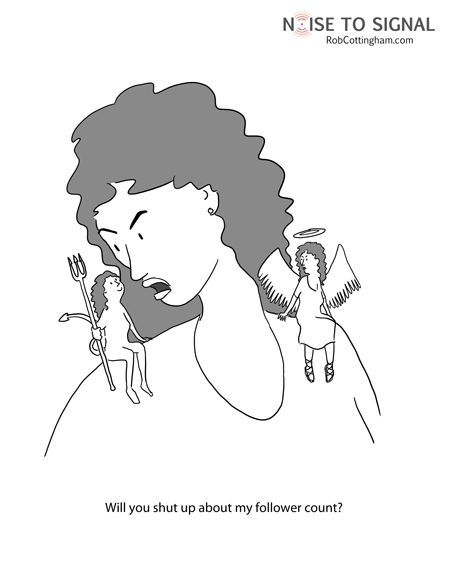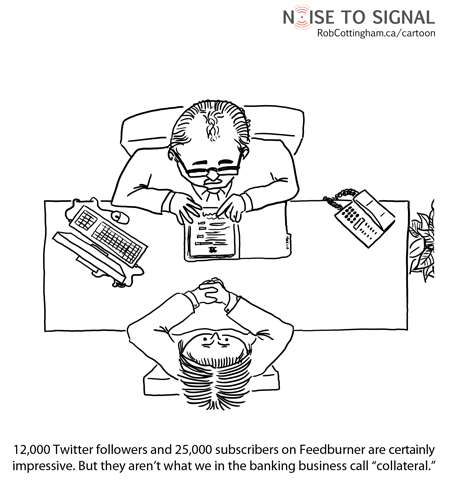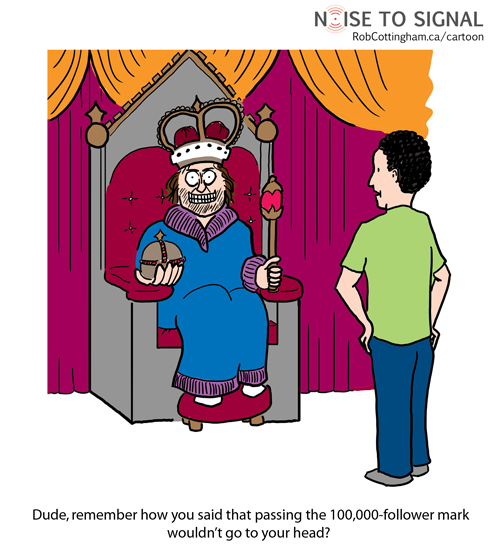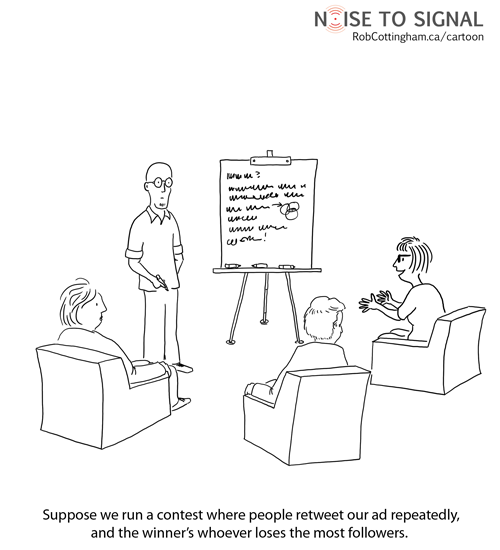Originally posted on ReadWriteWeb
This one was prompted by a conversation in Google Circles about how certain people weren’t circling certain other people, and how scandalous that was.
Oh, for god’s sake. As Shortpacked! cartoonist David Willis would put it, this is so babies.
If a friend of yours hasn’t circled you, and it’s bothering you, how about asking them why? Write an email, pick up the phone, ask them to coffee.
Apart from “They don’t really like me, and are just pretending they do, and oh, Christ, it’s high school all over again,” here are five reasons people you know might not have circled, followed, friended or buddied you yet:
- They’re just getting started, and haven’t systematically added their friends yet. Including you.
- They’re being very systematic, and they’re only adding their closest friends so far. Or a few folks from work.
- They’re using this network for a specific purpose, like keeping in touch with family, or colleagues.
- They did follow you, but the network dropped you from their list. Twitter’s notorious for this.
- Your posts on this network have put them off for some reason. Hey, it happens; you can’t please everyone. (See comment threads on ReadWriteWeb for confirmation.)
Points one and two just need you to have a little patience. Point three, acceptance. Point four, a polite (private) inquiry can do the trick.
For point five, look back at your last several posts to be sure they really do reflect the kind of value you want to offer your friends and followers; if not, adjust as necessary.
And if you’ve never considered what kind of value you’re offering people, get used to wondering why they aren’t following you.

